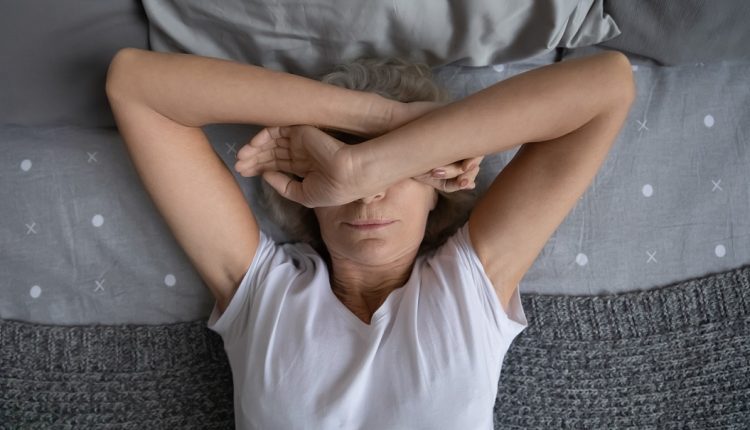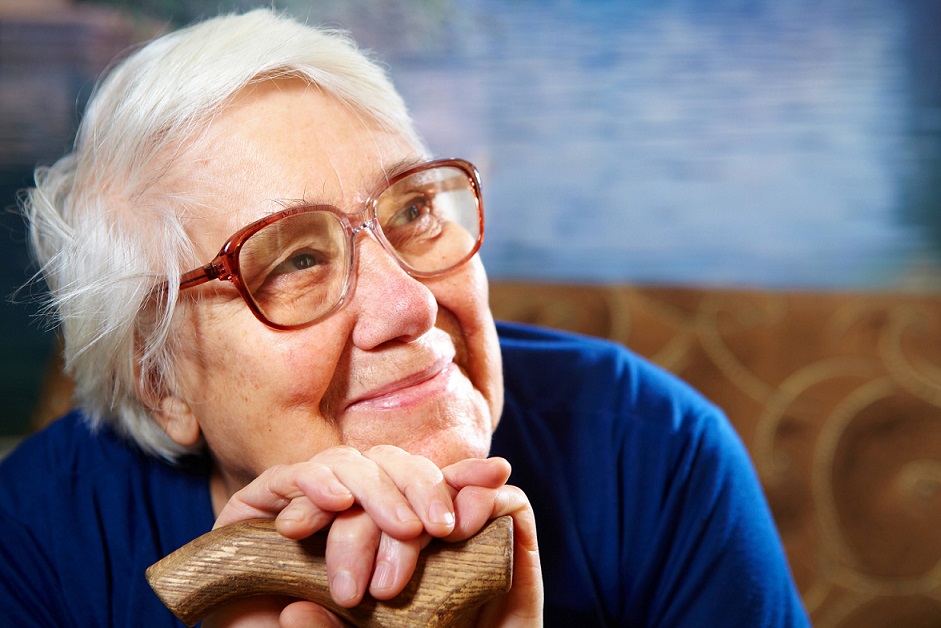
What Are The Most Threatening Mental Disorders In Seniors?
When it comes to old age, grandparents are the first people that come to mind.We may remember some difficulties with them. Their mood change and you may find some of the mental disorders related to the elderly people around you. On the other hand, life goes on every moment, and we have started the aging process since our birth. The human body needs care and protection and the younger years are the period in which the protection should start.
The period of human life that begins at the age of 65 is usually called old age. Various changes occur in the body as the person grows older. The function of most organs of the body decreases. Some changes also appear in the brain, like other parts of the body. The learning capacity of memory decreases and new subjects become challenging to learn. Therefore, the elderly’s ability to face new problems and find solutions for them decreases, which is a risk factor for their mental health.
Death of relatives and friends, especially spouse, marriage, and independence of children and distance from them, limitations due to various physical diseases and problems such as hearing and vision loss are examples of these factors that cause the isolation of the elderly from society. If the senior cannot deal with this challenging situation correctly, it will lead to mental disorders. Depression and dementia are among the most important of these disorders in the elderly. Anxiety and insomnia can also be the basis for these disorders.
for more information please read :“Most Common Diseases of Elderly that Affect our Lives”
Contents
Depression
Depression is one of the most common mental disorders in the elderly. Still, it is not a natural process in this period, and according to research, most seniors are satisfied with their lives. Some medications, mental stressors, and losing loved ones cause depression in the elderly. Especially if the elderly feel that they have lost others’ support and control of their life situation, depression will be more severe.
Depression does not mean that the person is not participating in gatherings and is always lonely. There are various signs that all of them show the person is depressed. Any changes in the mood, not enjoying life, changes in weight and appetite, changes in sleep patterns, constant fatigue, lack of concentration, and thinking of death and suicide are some of the most common symptoms of depression.
More Resources: Benefits of Keeping Pets for Seniors
Stress

Stress in old age not only decreases but also increases dramatically. Here are major causes of stress among seniors:
- lifestyle changes
- retirement
- caring for a sick spouse
- the death of relatives
- the death of close friends
- reduced physical abilities
- the presence of chronic and debilitating diseases
- caring for grandchildren
- worries about living independently
- fear of loneliness
- concerns about being rejected
- living in a nursing home
- lack of social support groups
Also, physical and mental illnesses will cause stress. If the stress exceeds the allowable limit, it will cause physical and mental diseases, clearly showing the interrelationship between disease and stress.
To deal with stress in the elderly, we need to talk to them about their feelings and concerns, give them confidence, and encourage them to use assistive devices such as canes, glasses, and hearing aids, if needed.
Dementia
One of the mental disorders of the elderly is dementia, which affects thinking, behavior, memory, and feeling. Some of the symptoms may be Decreased memory, difficulty finding the right words to speak or understand what others are saying, difficulty in doing previous daily activities, and behavioral changes. Dementia is not a natural condition of old age. So we should differentiate dementia from natural forgetfulness of old age, and as soon as possible, treat that.
Dementia occurs by damage or loss of nerve cells and their connections in the brain. Depending on the brain area affected, dementia can affect people in different ways and cause other symptoms.
Types of dementia are often in groups according to their commonalities, such as proteins deposited in the affected brain or the part of the brain. Some conditions are similar to dementia, such as those caused by drug allergies or vitamin deficiencies, and these conditions may cure with treatment.
Forgetfulness

Amnesia and memory loss are among the concerns of older people because they think that as they get older, their brains will no longer function as well as it did when they were young. Although forgetfulness, medically known as Alzheimer’s or dementia, is a hallmark of old age, it is not a reason for everyone to develop the disease as they get older.
Forgetfulness has various causes, one of which is aging. Some of the brain problems in people are aging, high fever, poor nutrition, inappropriate response to drugs, blood clots in the brain, tumors and brain infections, liver, kidney thyroid disorders, and head injuries. Although they do not cause dementia, they can cause memory loss, which is very serious and should treat immediately. Some forgetfulness that occurs in the elderly may have emotional roots. Feelings of extreme sadness, anxiety, fatigue, retirement, the death of a friend or loved one, depression, anxiety, and stress can affect a person’s memory, and emotional support from friends and family can help.
Alzheimer’s Disease
With age, some of a person’s mental and physical abilities, decrease because the brain, like other parts of the body, changes, decays, and wears out. If we do not do something to maintain and care for it, it may deteriorate. Alzheimer’s is the most common type of “dementia.” It is one of the most common mental disorders for the elderly and is more likely to develop between 60 to 65, but not necessarily every senior will develop Alzheimer’s.
However, it is good to know that many people who are worried about forgetfulness have not yet developed Alzheimer’s because people who get it do not realize it. In other words, temporary forgetfulness, which sometimes occurs due to mental fatigue caused by daily life, does not mean Alzheimer’s at all. Experts believe that the increase in dementia is natural, mainly due to the rise in life expectancy. In other words, increasing forgetfulness does not mean increasing its prevalence, but it does mean increasing aging and understanding and diagnosing diseases.
Alzheimer’s is a progressive brain disorder whose symptoms are divided into three stages.
Stage 1: At this stage, memory is impaired. This disorder is more common in short-term memory—the learning power of the elderly decreases.
Stage 2: In this stage, the sensory disturbance increases. It will be difficult for the elderly to do things like cooking, shopping, and managing finances.
Stage 3: This step is the final step. The older adult forgets everything and even his name. Urinary and fecal control is lost, and the senior will lose the ability to speak and move.
How to Deal with These Disorders

Elimination of these disorders is possible by strengthening the morale of the elderly. That seniors are still responsible for society and family and in any way possible and lead the elderly to a purposeful life to feel accountable for controlling their lives.
Psychologists have realized that no factor has a positive effect on the aging process as much as having a purpose in life. Society should not underestimate the elderly and retirees. Because with the experiences and savings they have gained during their lives, they are strong and reliable support and source for everyone, especially the youth, and can help the younger generations solve their problems. People may look old and disabled, but the elderly can help solve family and community problems and bring freshness and vitality to families and the community with their valuable experiences and vast savings.
Exercising for the elderly can act as a painkiller. It keeps the body in balance and is suitable for talking to different people and avoiding bitter events. For this reason, group exercise is good for the elderly. Not all sports are ideal for the elderly, and some sports can deteriorate their condition. The seniors were once young and energetic, and now they need our support. We will experience some of these events in our lives, so it is necessary to take the utmost care of our mental health to prevent these disorders in our senior years.
More Resources:
Believe it or not, I find some of these disorders as my good friends in my ageing journey! You may never notice that some of them are not the sad part of our stories, but they are somehow the crucial parts of a human being’s ageing process… sometimes it’s better to forget something or someone to move all the labours and responsibilities of our youth time into the younger ones … we should experience something more spiritual in our elderly days… being physically and mentally strong as our youth days never gives us the opportunity to find a deep insight into the unknown issues of the spiritual aspects of our lives. We should accept these so-called problems as naturally as possible. We probably should thank mother nature to bring these new experiences to us.
I wish getting old was just about having trouble falling asleep and joint pain. Physical pain is something we can handle because we know they exist. I’m turning 54 next month, and getting old scares the hell out of me. How would someone who is depressed know something is wrong? Except for the feeling that everything is wrong, the same goes for dementia; how would you know you have dementia or Alzheimer’s? How would you know you’ve forgotten things? Oh, sorry, I can’t remember what I’ve forgotten!
Well, happy birthday! I can say you’re stressed, but I don’t believe that’s necessary, as long as you maintain your healthy routine and do your favourite hobbies. I’m not as solid as I used to be; I was a rock climber years ago, but I have my books and my garden now, plus I speak Japanese, something I couldn’t do back then. Try to enjoy the blessing of growing up!
I think depression and, more importantly, stress both are the main reasons for other mental disorders in older adults. Stress, especially chronic stress, can disrupt all normal functions in the human body, Both physical functions or mental functions. The best way to prevent such problems in seniors is to eliminate the root of stress and depression.
Oh, depression is the worst. On paper, you have no problem. But even if things are perfect, on the inside, you don’t really care. You don’t even bother to realize if you’re alive or dead. I’ve combated this black, dark monster for two years and still, sometimes, when something terrible happens, I can feel it creeping back to my mind. I hope no one experiences what I’ve experienced.
As I get older, I am running out of time to achieve what I wish, and thus I become more stressed by failures and setbacks.
I’d say stress always matters, no matter your age.
A stressed baby has a more significant chance of turning into a stressed teenager and a stressed adult.
Stress takes away your energy, and you’ll notice these effects more when you’re older, as your general energy level goes down.
So, no matter what age, you must change your point of view and work on becoming stronger, so stress doesn’t affect you as much.